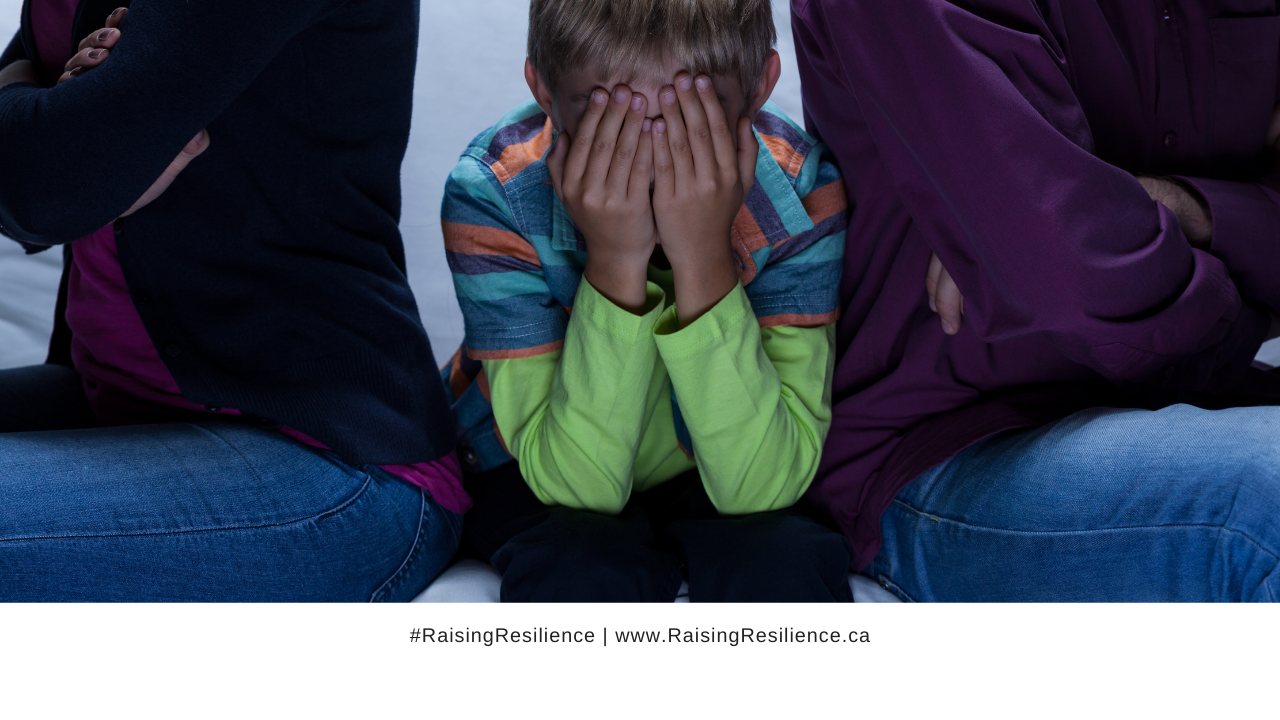Why Is My Child So Angry & Disruptive?

In my book, Raising Resilience, I explain that a way to understand a child’s inattention, hyperactivity, impulsivity, fatigue, anger, rage, anxiety, depression is as an imbalance between their stress load and stress tolerance.
There might be too much stress.
There might be reduced stress tolerance.
There might be both.
Regardless of the actual symptom you're seeing and they're experiencing if we want to help them our job is to find and reduce their stress load and improve their stress tolerance.
This is the process I call in my book, "Raising Resilience".
"But My Child's Not That Stressed! They Just Over-react!"
The Impact Of Hidden Internal Stress
We need to broaden our definition of what causes stress in kids. Here I'm talking specifically about the things that cause internal, hidden stress.
I'm talking about things like immune activation from foods and parasites, blood sugar ups and downs, nutrient imbalances, imbalances like candida yeast overgrowth.
This kind of stress stimulates your child's stress hormones and keeps them fluctuating between a state of agitation and shut-down.
This stress prevents your child from self-regulating well and showing up as the best version of themselves.
(Related video: How to help your child feel better without relying on medication)
The list I've compiled here outlines some common hidden internal stressors I've seen contribute to a child's mood, behavior, and learning struggles.
This list is not complete or diagnostic.
I simply offer it to show you some powerful nutritional options to pursue that can help resolve your child's anger, agitation, inattention, moodiness, anxiety, depression, and unpredictability.
Common Contributors To Mood, Learning & Behavior Challenges In Kids
Symptoms |
Common Contributing Factors |
|
Hyper, excitable, irritable, mood swings, poor memory, poor attention span, |
Candida overgrowth, clostridia overgrowth, low iron, food sensitivity, low B6, low magnesium, poor blood sugar control |
|
Aggression, violence, depression, suicide/ideation, |
Low cholesterol, low inositol, poor fat digestion, high copper, low zinc, methylation problems, clostridia infection, low serotonin |
|
Anger, aggression, constant irritation, temper, argumentative, inappropriate, hostile, hyperactive, |
Low lithium, methylation problems, low zinc, low B6, pyrrole disorder, high copper, low serotonin, low dopamine |
|
|
Clostridia overgrowth, fatty acid deficiency, low zinc, low magnesium, poor blood sugar control, high glutamate, poor detoxification capacity |
|
|
High copper, low zinc, gluten or casein sensitivity, low GABA, high glutamate, low magnesium, poor digestion, pyrrole disorder, excess cortisol, DBH variants (genetics) |
|
Highly intelligent but spacey and daydreamy, good behavior/socialization but poor academics |
Deficiencies in folate, zinc, choline, B12, poor blood sugar control, iron deficiency, pyrrole disorder |
The Bottom Line
Symptoms don't always come bundled like this, but can you see your child in there somewhere? And can you see some common threads?
Here are the common threads...
- nutrient imbalances
- gut issues
- food sensitivities
- toxin accumulation
- infections
- poor blood sugar control
Remember, your child is unique. They're not a cookie and there is no cookie-cutter prescription for what they're going through.
But a child's behavior and way of being has triggers. And some of those triggers are hidden internal stressors like these.
Behavior becomes predictable once you know what's going on inside the body, and when that happens, solutions unfold. The body is brilliant.
Identifying hidden sources of stress using a combination of functional testing, systematic tracking, a look into their history, and educated trials is how you build health, resilience, and emotional stability from the inside out.
Related Posts
How we help kids feel better without medication






